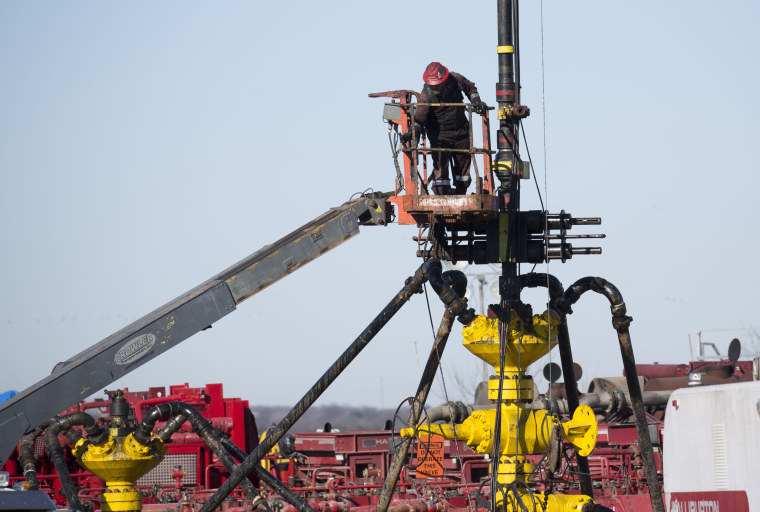It took just a few hours into the new year for President Donald Trump to do what he has done repeatedly through his first two years in office — claim credit for positive economic news.
"Do you think it’s just luck that gas prices are so low, and falling? Low gas prices are like another Tax Cut!" Trump exclaimed on Twitter.
It took critics a few more hours to do what they have often done during the first two years of Trump’s tenure — assert that the president was oversimplifying, at best.
Trump's claim of positive pocketbook news for Americans appeared to be offered, at least in part, as an antidote to a sour 2018 on Wall Street, where stocks posted their worst performance in a decade.
The outlook was much better for consumers at the fuel pump, where gas dipped to less than $2 in some locations and to less than $2.25 in thousands of other spots, energy analysts said in November.
Not long after, Trump took to Twitter to thank Saudi Arabia for keeping oil prices low. "Oil prices getting lower," he wrote. "Great! Like a big Tax Cut for America and the World. Enjoy!" Later that same day, Thanksgiving eve, he quipped that he had driven gas prices so low that "more people are driving and I have caused traffic jams throughout our Great Nation." Adding, "Sorry everyone!"
Experts said Trump can take some credit for the increased supply of gas that has driven prices lower, but that fuel economics is a hugely complex subject, impacted by many variables.
About half of the price of a gallon of gas is driven by the crude oil cost, while the rest is tied to the cost of refining, distribution, marketing and taxes, according to the Department of Energy. The temporary or prolonged shutdown of a key refinery can cause prices to spike. And states with high taxes, like California, consistently post higher prices at the pump.
The influence that Trump can legitimately claim some credit for is the increase in production that has accompanied America’s massive increase in hydraulic fracturing — the process of pumping liquid underground at high pressure to free up oil and gas deposits.
"There has been an increase in production that has put a downward pressure on prices. He can claim some credit for that," said Severin Borenstein, director of the Energy Institute at University of California, Berkeley’s Haas School of Business. "But, at the same time, most of the increase in production took place well before Trump took office, in the 2010 to 2015 time period."
But while the U.S. has become the biggest oil producer, most of the world’s supply comes from other nations only tangentially influenced by Trump, or any other American, experts said.
The Organization of Petroleum Exporting Countries (OPEC) and its dominant player, Saudi Arabia, have talked about restricting production to drive up prices, but have largely failed to do so. The cartel next meets in Austria in April to consider another production-limit proposal that theoretically could drive up prices.
The glut of oil from Saudi Arabia and other OPEC nations has been magnified because another major oil source, Iran, has seen its exports increase. Though Trump promised to get tough on the regime in Tehran, his deal to reinstate sanctions on Iran included waivers that allowed eight countries to temporarily buy oil from Iran.
Combined with OPEC production, the freed-up Iranian oil has helped to glut the market.
"You could say he helped lower oil prices, but he did it by being weaker than expected on a country he’s labeled as an enemy of America and by potentially derailing economic growth through a trade war with China," Ashley Petersen, a senior oil market analyst at the energy advisory firm Stratas Advisors, told Vox. "Not exactly bragging points."
Petersen also emphasized that tying one's economic fortunes to the notoriously volatile price of oil and gas is a dicey proposition. "There are so many variables that go into oil prices, almost none of which are under his control, that taking credit for a price drop will inevitably backfire when the price rises again," Petersen added, in the same interview.
The discussion about the benefits of lower gas prices also leaves unmentioned a collateral impact: Cheaper gas increases consumption and automobile emissions, adding to Earth-warming greenhouse gases, said Borenstein, the business professor.
"Lower gas prices surely make people happy," Borenstein said. "But they also lead to more investment in low fuel economy cars and more driving. And that means even less progress on fighting climate change, which we know is largely man-made."
